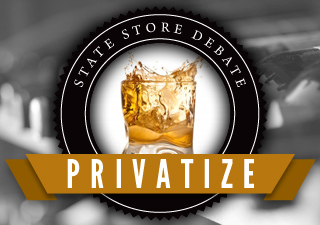Media
Pennsylvania Pols Pass Potent Potables Perestroika
 Today, the Pennsylvania House amended HB 11 and then sent it on to the full house for consideration. The first amendment guts any privatization of the Pennsylvania Liquor Control Board. The state would still run retail stores and operate wholesale operations for both wine and spirits.
Today, the Pennsylvania House amended HB 11 and then sent it on to the full house for consideration. The first amendment guts any privatization of the Pennsylvania Liquor Control Board. The state would still run retail stores and operate wholesale operations for both wine and spirits.
The amended bill would allow narrow competition with the PLCB in wine, but spirits would remain a PLCB monopoly. Under the new bill:
- Beer distributors could get an enhanced license for a $50,000 one-time fee and $15,000 annual fee to sell wine. Grocery stores currently allowed to sell beer would also be eligible, as would some additional grocery stores that keep alcohol sales in a separate contained area.
- Bars and hotels could sell a few bottles of wine for off-premises consumption.
- New wine wholesalers could enter Pennsylvania and compete with the PLCB, for the mere price of $100 million dollars.
- The PLCB would have more flexibility with Sunday hours and sales, offering coupons, flexibility in pricing, and even avoiding state law for procurement by government agencies (allowing for more no-bid contracts and the like). This was all part of the PLCB’s “Alternatives to Privatization” that would allow it to “act more like a private business.”
For more on the revamped bill, see stories from the Patriot News, the Pittsburgh Tribune-Review, and the Post-Gazette.
While this move might give consumers a bit more flexibility in buying wine, it fails to address the conflict of interests in a government agency buying ads both to encourage liquor sales then others suggesting drinking too much will get you raped. It does nothing to address the government monopoly over spirits, and maintains the government business which has made blunder after blunder costing taxpayers…and, oh, by the way, ended last fiscal year $30 million in the hole.
Lawmakers don’t need to allow a government agency to act like a private business, they need to realize that government in the booze business is a lose business.
With the bill now going to the house floor, there are expected to be many additional amendments for discussion, and lawmakers will have the opportunity to restore the legislation to its original intent.